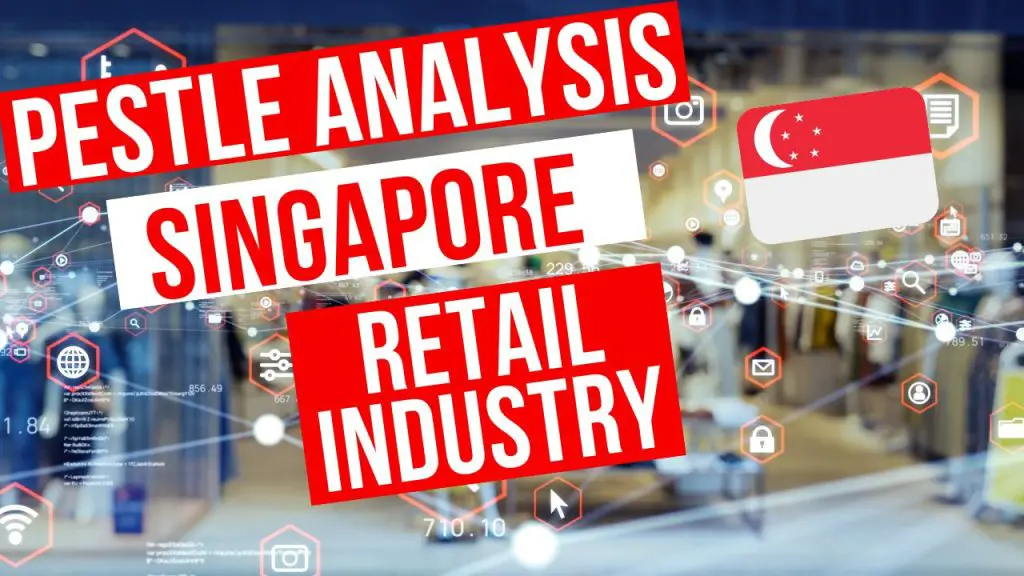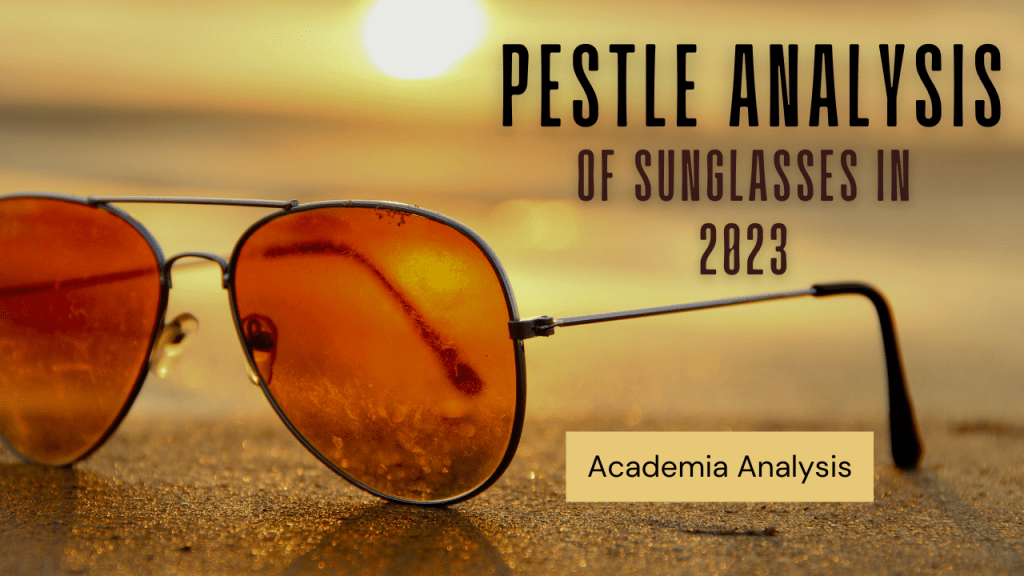The retail industry in Singapore is an important component of the country’s economy, providing employment opportunities and contributing significantly to the GDP. To understand the current state and potential future developments of this industry, a PESTLE analysis can be conducted.
This analysis considers the political, economic, social, technological, legal, and environmental factors that can impact the industry. By examining each of these factors, we can gain insight into the opportunities and challenges facing retailers in Singapore and develop strategies to ensure success in this competitive market.
- 1. Political Factors of PESTLE Analysis of Singapore Retail Industry
- 2. Economic Factors of PESTLE Analysis of Singapore Retail Industry
- 2. Sociological Factors of PESTLE Analysis of Singapore Retail Industry
- 4. Technological Factors of PESTLE Analysis of Singapore Retail Industry
- 5. Legal Factors of PESTLE Analysis of Singapore Retail Industry
- 6. Environmental Factors of PESTLE Analysis of Singapore Retail Industry
1. Political Factors of PESTLE Analysis of Singapore Retail Industry
Government Stability and Policies
The stability and consistency of government policies play a crucial role in the success of the retail industry in Singapore. The Singapore government has been known for its stable and pro-business policies, creating a favorable environment for retailers to operate in.
Trade Regulations and Agreements
The Singapore government has a well-established reputation for free trade and openness to foreign investment. It has signed numerous trade agreements and maintains a liberal trade policy that encourages foreign retailers to invest in the country.
Taxation Policies
The Singapore government has a favorable taxation policy that offers tax incentives to businesses that invest in the country. These incentives make it easier and cheaper for retailers to operate in Singapore, helping to attract foreign investment.
Labor Laws and Regulations
The Singapore government has strict labor laws and regulations that protect workers’ rights and interests. These laws and regulations can affect retailers’ labor costs and the flexibility of employment arrangements, which can have an impact on the retail industry.
Political Stability
Political stability is a critical factor in the success of any industry, including the retail industry. Singapore has a stable political environment, which creates a predictable and secure business environment for retailers to operate in.
2. Economic Factors of PESTLE Analysis of Singapore Retail Industry
Economic Growth
The economic growth of Singapore is a crucial factor that can impact the retail industry. The country has a strong and stable economy, which creates a favorable environment for retailers to operate in.
Consumer Spending
Consumer spending is a significant driver of the retail industry. Singapore has a high per capita income and a growing middle class, which creates a large consumer market for retailers to tap into.
Inflation Rates
Inflation rates can impact retailers’ costs and prices, which can affect their profitability. Singapore has a low and stable inflation rate, which can help retailers maintain stable pricing and cost structures.
Exchange Rates
Exchange rates can impact the cost of imports and exports, which can affect retailers’ costs and profitability. Singapore has a strong currency and a favorable exchange rate environment, which can make it easier and cheaper for retailers to import goods.
Interest Rates
Interest rates can impact the cost of borrowing and the availability of credit, which can affect retailers’ investment decisions and expansion plans. Singapore has a low-interest-rate environment, which can make it easier and cheaper for retailers to borrow and invest in the country.
2. Sociological Factors of PESTLE Analysis of Singapore Retail Industry
Lifestyle and Demographics
The lifestyle and demographics of Singaporeans can have a significant impact on the retail industry. The country has a diverse population with varied lifestyles and preferences, creating opportunities for retailers to cater to different consumer segments.
Consumer Behavior
Consumer behavior is a critical factor in the retail industry. Singaporeans are known to be tech-savvy and highly connected, with a preference for online shopping. Retailers need to adapt their strategies to cater to these changing consumer behaviors.
Education and Literacy Levels
Education and literacy levels can affect consumer behavior and their ability to make informed purchasing decisions. Singapore has a highly educated population, which can create a more discerning consumer base, requiring retailers to offer high-quality products and services.
Cultural Factors
Cultural factors, such as traditions, beliefs, and values, can impact consumer behavior and preferences. Singapore is a multicultural society with diverse cultural influences, creating opportunities for retailers to cater to different cultural groups and their preferences.
Health and Wellness
Health and wellness are becoming increasingly important factors in consumer purchasing decisions. Singaporeans are becoming more health-conscious, creating opportunities for retailers to offer healthier products and services to cater to this growing trend.
4. Technological Factors of PESTLE Analysis of Singapore Retail Industry
E-commerce and Online Retailing
E-commerce and online retailing have been rapidly growing in Singapore, creating opportunities for retailers to expand their online presence and tap into a larger consumer market. Technological advancements in logistics and delivery services have also made it easier and cheaper for retailers to offer online sales.
Mobile Technology
Mobile technology is becoming increasingly important in the retail industry. Singaporeans are highly connected and have a preference for mobile devices, creating opportunities for retailers to develop mobile apps and offer mobile-based shopping experiences.
Payment Systems
Payment systems have evolved rapidly in recent years, with new and innovative payment methods such as e-wallets and mobile payments gaining popularity. Retailers need to adapt to these changing payment systems and offer a range of payment options to cater to different consumer preferences.
Data Analytics
Data analytics is becoming an essential tool for retailers to understand consumer behavior and preferences. With the rise of big data and artificial intelligence, retailers can use data analytics to gain insights into consumer behavior, personalize shopping experiences, and improve marketing strategies.
Cybersecurity
As retailers increasingly rely on technology, cybersecurity is becoming a critical concern. Retailers need to invest in cybersecurity measures to protect customer data and ensure the security of online transactions, which is essential for maintaining consumer trust and confidence.
5. Legal Factors of PESTLE Analysis of Singapore Retail Industry
Consumer Protection Laws
Consumer protection laws play a crucial role in regulating the retail industry and ensuring fair business practices. Singapore has strong consumer protection laws that protect consumers’ rights and interests, creating a more trustworthy and reliable retail environment.
Intellectual Property Rights
Intellectual property rights are important in the retail industry, where brands and products are highly valuable. Singapore has well-established intellectual property laws that protect brands and products from infringement and theft, creating a more secure business environment for retailers.
Labor Laws and Regulations
Labor laws and regulations can impact retailers’ labor costs and the flexibility of employment arrangements. Singapore has strict labor laws and regulations that protect workers’ rights and interests while also ensuring fair and competitive employment practices.
Health and Safety Regulations
Health and safety regulations are important in the retail industry to ensure the safety of consumers and employees. Singapore has stringent health and safety regulations that retailers need to comply with to maintain a safe and secure retail environment.
Environmental Regulations
Environmental regulations are becoming increasingly important in the retail industry, where retailers need to demonstrate their commitment to sustainability and eco-friendliness. Singapore has well-established environmental regulations that retailers need to comply with to maintain their operations while minimizing their impact on the environment.
6. Environmental Factors of PESTLE Analysis of Singapore Retail Industry
Climate Change and Natural Disasters
Climate change and natural disasters can have a significant impact on the retail industry, particularly in terms of supply chain disruptions and inventory management. Singapore is vulnerable to natural disasters such as floods and typhoons, creating risks for retailers in terms of supply chain disruptions.
Waste Management
Waste management is becoming an important consideration for retailers, particularly in the context of environmental sustainability. Singapore has a comprehensive waste management system, creating opportunities for retailers to adopt sustainable waste management practices.
Energy Consumption and Efficiency
Energy consumption and efficiency are important factors in the retail industry, particularly in terms of cost savings and environmental sustainability. Singapore has implemented various energy efficiency initiatives, creating opportunities for retailers to adopt energy-efficient practices to reduce their costs and environmental impact.
Sustainable Sourcing and Manufacturing
Sustainable sourcing and manufacturing are becoming increasingly important in the retail industry, particularly in terms of environmental and social sustainability. Singapore has implemented various initiatives to encourage sustainable sourcing and manufacturing practices, creating opportunities for retailers to adopt such practices and differentiate themselves in the market.
Green Building Standards
Green building standards are becoming increasingly important in the retail industry, particularly in terms of energy efficiency and environmental sustainability. Singapore has implemented various green building standards, creating opportunities for retailers to adopt sustainable building practices to reduce their costs and environmental impact.






